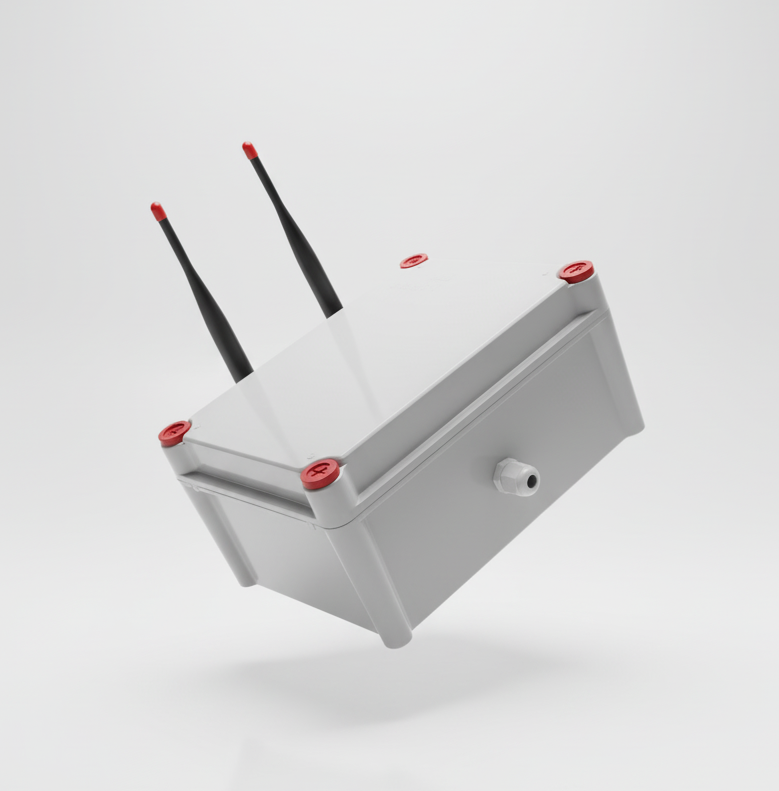LoRa Gateway
The LoRa Gateway is designed for large-scale, wide-area deployments, specializing in collecting small data packets from numerous battery-powered water meters over long distances using the LoRaWAN protocol.

1. Key Features (LoRa Gateway)
- Long-Range Coverage: Connects to meters located several kilometers away, suitable for expansive residential, rural, or city-wide deployments.
- Low Power Consumption: LoRaWAN is optimized for low-power end devices, enabling water meters to operate for years on a small battery.
- High Scalability: A single gateway can manage thousands of end devices, making it ideal for mass deployment.
- Backhaul: Utilizes high-bandwidth backhaul (Cellular, Ethernet, Wi-Fi) to transmit aggregated data to the cloud.
- Energy Monitoring: Capable of measuring the current (energy utilization) of connected slave devices for better power management and diagnostics.
2. Technical Specifications (LoRa Gateway)
| Specification | Details | Notes |
|---|---|---|
| Meter Protocol (Inbound) | LoRaWAN Class A/C | Receives data from LoRa-enabled water meters. |
| Frequency Band | ISM (e.g., 915 MHz or 868 MHz) | Operates in license-free sub-GHz bands (specific regional variant applies). |
| Max Devices Supported | 1,000+ (Dependent on traffic/interval) | Designed for high-density and wide-area coverage. |
| Max Range (Approx.) | 2 km (Urban) to 15 km (Rural) | Long-range capability minimizes the number of gateways required. |
| Backhaul (Outbound) | Cellular (4G/5G, LTE-M) / Ethernet / Wi-Fi | Required to transmit aggregated data to the cloud. |
| Cloud Protocol | MQTT, HTTPS | Standard IoT protocols for secure data delivery. |
| Enclosure | IP67 or Higher | Outdoor-rated, weather-proof enclosure for wide deployment. |
| Power Input | 12 V DC or Power over Ethernet (PoE) | Requires a dedicated power source. |